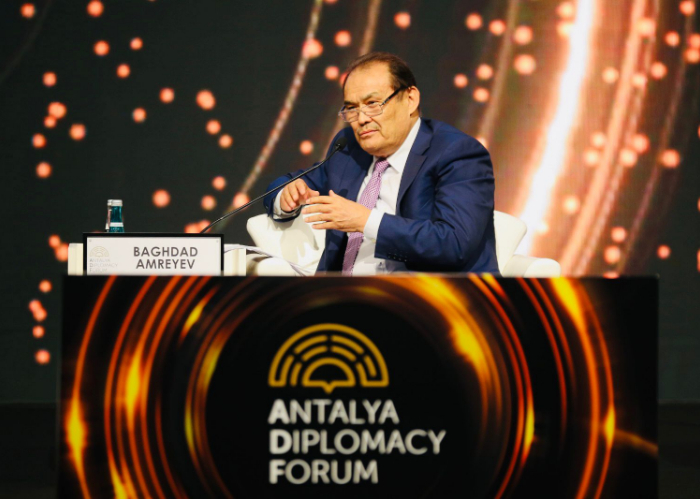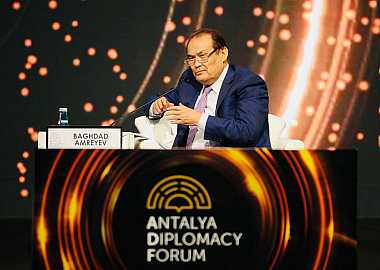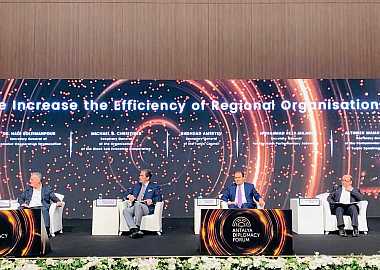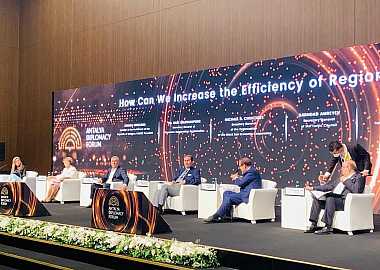In the framework of Antalya Diplomacy Forum, Secretary General of the Turkic Council, H.E. Baghdad Amreyev has taken part as panelist in the Session entitled “How Can We Increase the Efficiency of Regional Organizations?” and moderated by Andrea Sanke, Senior Presenter at TRT World.
During the session, the panelists discussed the role of regional organizations in view of regional as well as global risks and challenges, addressed the ways for adaptation of regional organizations to complement global institutions and explored avenues on how to increase effectiveness of regional organizations.
Secretary General Amreyev stated that despite the small number of its members, Turkic Council has a greater influence as it represents hundreds of millions of Turkic speaking peoples and communities. In parallel, he noted that the Turkic Council has a growing and crucial role in responding to emerging global and regional challenges affecting the Turkic World thanks to direct and high level communication networks established over the years among its members in different fields of cooperation, quick decision-making and implementation processes as well as the steering role accorded to the Secretariat.
Stressing that efficiency of regional organizations is highly dependent on what kind of authority and flexibility are given by its members to them, Secretary General underlined the advantage of regional organizations, in comparison to global organizations, in defending common interests and producing faster responses to common challenges as they have a smaller number of member countries.
Lastly, Secretary General drew attention among others, to the need for establishment of an organized cooperation within and between world regions in order to increase the efficiency of international organization with a view to better responding global challenges and avoiding duplication in their dealings. In this respect, he pointed out that institutionalization of intraregional and interregional relations would be valuable in terms of finding an order between the too disorganized global level and the rarely sufficient national level from the perspective of dealing with global issues such as pandemics, environmental risks and security challenges.
During the session, the panelists discussed the role of regional organizations in view of regional as well as global risks and challenges, addressed the ways for adaptation of regional organizations to complement global institutions and explored avenues on how to increase effectiveness of regional organizations.
Secretary General Amreyev stated that despite the small number of its members, Turkic Council has a greater influence as it represents hundreds of millions of Turkic speaking peoples and communities. In parallel, he noted that the Turkic Council has a growing and crucial role in responding to emerging global and regional challenges affecting the Turkic World thanks to direct and high level communication networks established over the years among its members in different fields of cooperation, quick decision-making and implementation processes as well as the steering role accorded to the Secretariat.
Stressing that efficiency of regional organizations is highly dependent on what kind of authority and flexibility are given by its members to them, Secretary General underlined the advantage of regional organizations, in comparison to global organizations, in defending common interests and producing faster responses to common challenges as they have a smaller number of member countries.
Lastly, Secretary General drew attention among others, to the need for establishment of an organized cooperation within and between world regions in order to increase the efficiency of international organization with a view to better responding global challenges and avoiding duplication in their dealings. In this respect, he pointed out that institutionalization of intraregional and interregional relations would be valuable in terms of finding an order between the too disorganized global level and the rarely sufficient national level from the perspective of dealing with global issues such as pandemics, environmental risks and security challenges.












